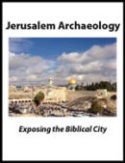
For the Freedom of Zion: The Great Revolt of Jews Against Romans, 66–74 CE
By Guy MacLean Rogers
(New Haven: Yale Univ. Press, 2021), xxii + 721 pp., 23 b/w photos and drawings, 5 maps; $37.50 (hardcover), $28.49 (eBook)
Reviewed by Dennis Mizzi
In 66 CE, fighting between the Jewish populace and their Roman overlords broke out in Judea. It eventually led to all-out war, culminating in the destruction of Jerusalem in 70 CE. Three years later, the last rebel stronghold at Masada was captured. These events proved to be game changing for the ensuing history of Judaism and Christianity as well as the Roman Empire.
Thanks to Flavius Josephus, the first-century Jewish writer who played an active role in the First Jewish Revolt against Rome and was witness to some of its major events, scholars have a treasure trove of information to sift through. One could say that without Josephus’s Jewish War (and his Life and Antiquities) we would know next to nothing about the war’s ins and outs. But to many scholars, Josephus is an obstacle that has to be overcome in the quest to untangle the “real” causes of the revolt and to unfold its events.

Josephus’s work is considered suspect by many, partly because he tries to cast the blame for the revolt’s outbreak on a few unsavory characters while exculpating his own class, the aristocracy. Josephus also wrote a different kind of history than we are used to. His work is at home in the Greco-Roman world; in typical fashion, it blends drama with history, is imbued with his moral and theological values (and judgments!), and is shaped by his apologetic tendencies. Consequently, scholars have invested enormous effort into interrogating Josephus’s work and its reliability.
With his book For the Freedom of Zion, Guy MacLean Rogers enters this conversation by acknowledging these limitations, except that he sees this as an opportunity, not an encumbrance. Whether we like it or not, the war that we can know about in detail is Josephus’s war, which is both a blessing and a challenge. While it is commonplace to resort to archaeology to test Josephus’s reliability, Rogers recognizes the limits of these endeavors. Although archaeological evidence for siege warfare confirms that particular battles did indeed take place, this has little to no bearing in evaluating Josephus’s credibility. Furthermore, archaeological remains are not a substitute for the rich narrative that the historian presents. Therefore, argues Rogers, we must take seriously Josephus’s unique, albeit complicated, perspective about the war’s various events.
In his approach to Josephus, Rogers departs from previous scholarship in a fundamental way. Instead of limiting his focus to the causes of the revolt—a major scholarly preoccupation—he takes a deep dive into every aspect of Josephus’s narrative. Although Rogers reads Josephus critically, he is more receptive to his viewpoint than most scholars today. For example, on the much-disputed historicity of the mass suicide at Masada, Rogers puts the burden of proof on modern scholars to refute Josephus’s testimony. He argues that Josephus’s story would be moot if it were completely fabricated, and it would have been called into question by many leading Romans with whom Josephus says he shared his text. Rogers also emphasizes that Josephus indirectly offers a less-than-flattering portrayal of the Roman emperors Vespasian and Titus, which shows that his work cannot be dismissed as a mere tool of imperial propaganda.
Concerning the causes of the revolt, Rogers forgoes systemic explanations. There were always religious, political, and cultural tensions in Roman Judea, and war could have broken out at various other points before 66 CE, but it did not. Like many other conflicts, what precipitated the First Revolt was a series of individual (sometimes rash) actions and decisions, insignificant in and of themselves, but which, in combination, created a deadly chain reaction that ultimately ignited the sparks of war. The revolt, in other words, was neither predictable nor inevitable.
Significantly, Rogers shifts the spotlight onto Rome’s responsibility for the revolt’s outbreak and its devastating outcome. Following the great fire in Rome in 64 CE, Nero was cash-strapped, and Judea and other provinces were tasked to foot the bill. Some of the provocative actions undertaken by the procurators, which helped fan the flames of war, can be linked directly to Rome’s financial needs. Vespasian, moreover, may have started out as a general fighting Nero’s war, but ultimately was (together with his son Titus) the one responsible for seeing it through to the bitter end. The victory over the Jews served to legitimize the establishment of the Flavian dynasty and deflected attention away from the casualties and immense destruction that Rome’s civil war had wrought—the very war that catapulted Vespasian to power. Rogers argues that Vespasian may also have had a stake in destroying the Jerusalem Temple, to eliminate a competitive sacrificial cult that might threaten Rome’s hegemony in the eastern Mediterranean.
This, then, explains why the First Jewish Revolt was neither a small nor an insignificant war, contrary to some recent claims. Rogers’s shifting of the focus away from the revolt’s causes to the reasons the Romans invested so much effort and resources into quelling it offers a refreshing and compelling take on a pivotal historical event many of us thought we knew well.
Dennis Mizzi is a senior lecturer in Hebrew and ancient Judaism at the University of Malta. He specializes in Qumran studies, the Dead Sea Scrolls, and early Judaism.
Read more in Bible History Daily:
A New Document Dated to Four Years After the Second Jewish Revolt
Read more in the BAS Library:
Did the Temple Menorah Come Back to Jerusalem?
Recovering Roman Jerusalem—The Entryway Beneath Damascus Gate
Not a BAS Library or All-Access Member yet? Join today.The post Review: For the Freedom of Zion appeared first on Biblical Archaeology Society.


0 Commentaires